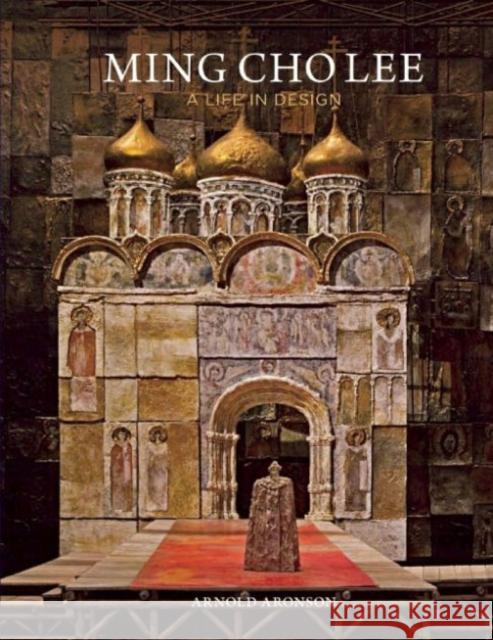Ming Cho Lee: A Life in Design » książka
Ming Cho Lee: A Life in Design
ISBN-13: 9781559364614 / Angielski / Twarda / 2014 / 336 str.
Winner of the 2014 George Freedley Memorial award.
-A gorgeous volume that] celebrates the legacy of Lee.- - Time Out New York
-Whether working in theater, opera or dance, Ming Cho Lee has made an incalculable contribution to the performing arts in America. This elegant coffee table book, written by Arnold Aronson, pays tribute in prose and photographs to his singular career.- - Los Angeles Times
-A comprehensive, compassionate and intelligent book... A book of major importance, a must-read for all theatre folk, indeed for anyone drawn to the mysteries of making art.- Theatre Design & Technology
Ming Cho Lee is not only one of the most important American designers of the twentieth century, but one of the most significant influences on American theatre. As a designer, he drew upon his training in Chinese watercolor, the aesthetics of his mentors, Jo Mielziner and Boris Aronson, and the post-war developments in German design to develop a new approach to stage design that radically altered American scenography. He broke new ground, combined existing motifs in startling new ways and continued to explore new ideas throughout his entire career. Lee introduced a sculptural style with soaring verticality that had been largely unknown to American stages. The painterly image was replaced with a decidedly modern and industrial scenic vocabulary that emphasized stage-as-stage.
Lee has designed more than 300 productions of theatre, opera and dance, beginning with his first student work, The Silver Whistle at Occidental College in 1952, through his last productions in 2005. Unlike his predecessors, Lee did not make his mark on Broadway. Rather, it was achieved through some forty productions with the New York Shakespeare Festival, including eleven seasons at the Delacorte Theater from its opening in 1962; thirteen productions for New York City Opera, beginning with its inaugural production at Lincoln Center; five mainstage productions for the Metropolitan Opera, including Boris Godunov, which stayed in the repertoire for more than thirty years; twenty-one productions for Arena Stage in Washington D.C., and numerous other productions at regional theatres including the Mark Taper Forum in Los Angeles, Shakespeare Theatre Company in Washington, D.C., Long Wharf Theatre in New Haven, the Guthrie Theater in Minneapolis, and Actors Theatre of Louisville; and ten pieces for the Joffrey Ballet, as well as productions for Martha Graham, Alvin Ailey, Elliot Feld, the Pacific Northwest Ballet and Cloud Gate Dance Theatre of Taiwan.
Called -the dean of American set designers- by the New York Times, Lee had an impact that goes well beyond his own work. As a teacher, including more than forty years at the Yale School of Drama, Lee shaped generations of theatre artists--not only set designers, but costume and lighting designers, as well as directors, writers and dramaturgs. It is through these students that he helped transform not only American scenography but the larger aesthetics of American theatre.
For this richly detailed exploration of Lee's work, theatre historian Arnold Aronson spent hundreds of hours interviewing Lee at his legendary New York apartment. The book is both a study of and a conversation with Ming Cho Lee. Each image selected for this book was chosen personally by Lee from thousands of photos, drawings, sketches, renderings and models, all carefully cataloged by Lee's wife and lifelong archivist, Betsy. Lee's work has been showcased at the New York Public Library and the Yale School of Architecture, and his honors include a Tony Award for best scenic design of a play, an Outer Critics Circle Award, three Drama Desk Awards, a special Tony Award for lifetime achievement and the National Medal of the Arts, the highest national award given in the arts.











